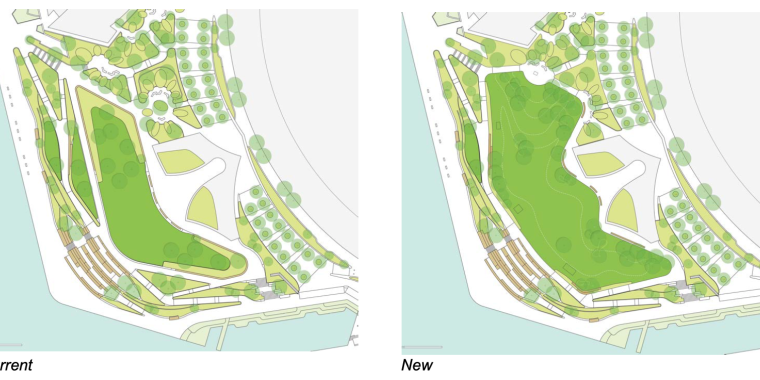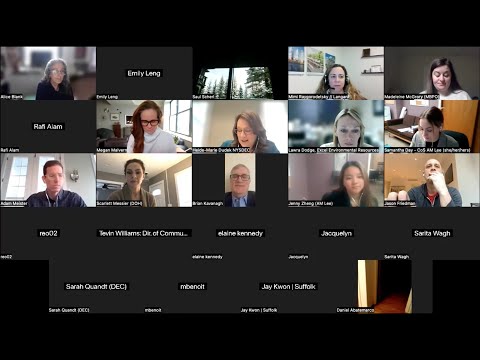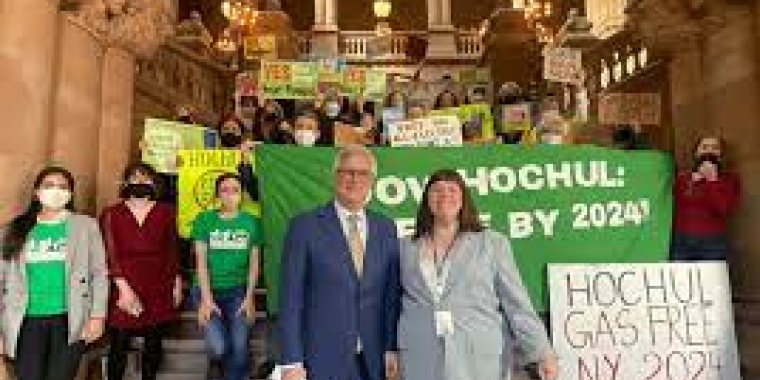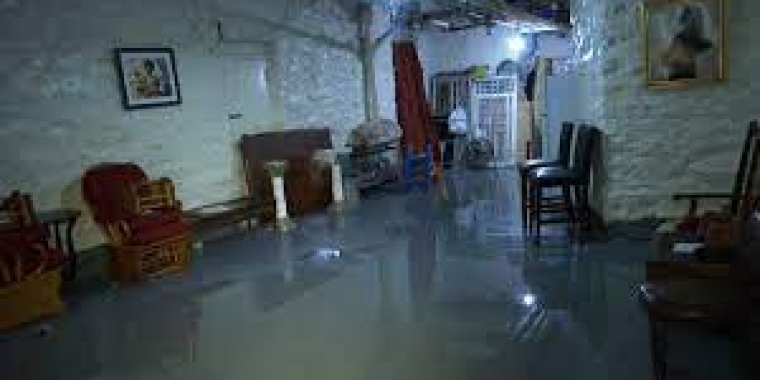
BPCA Announces Additional Lawn Space and Trees in Plans For a Resilient Wagner Park in Response to Input From Local Elected Officials & Stakeholders
August 16, 2022
-
ISSUE:
- Resiliency
- Battery Park City

BPCA Announces Additional Lawn Space and Trees in Plans For a Resilient Wagner Park in Response to Input From Local Elected Officials & Stakeholders
Conversion of planted areas and hardscape to lawn space accommodates additional community request without compromising resiliency benefits or impacting construction timeline planned for the South Battery Park City Resiliency Project
The Battery Park City Authority (BPCA) today announced enhancements to the final designs for the South Battery Park City Resiliency Project (SBPCR) – an initiative designed to provide urgently-needed flood risk reduction for Battery Park City and Lower Manhattan in the face of more frequent and more severe storms – that will increase lawn area for the project by an additional 12,800 square feet. This revision represents a 74% increase in lawn space compared to the current design.
“Throughout the nearly six-year development of the South Battery Park City Resiliency Project, we’ve worked hard to balance the urgency of creating a more resilient Battery Park City and Lower Manhattan with the importance of incorporating community voices,” said BPCA President & Chief Executive Officer B.J. Jones. “In keeping with that effort, I’m pleased that we’ve been able to significantly expand lawn space in addition to other modifications we’ve made over the course of this initiative without losing momentum to provide critical protection against catastrophic storms. I thank our local elected officials and Manhattan Community Board 1 for their continued advocacy, leadership, and support for this important project.”
“By increasing the amount of lawn space by over 70 percent in this latest design, the BPCA has created a project that better reflects the needs of the local community while also ensuring this essential project moves forward,” said Manhattan Borough President Mark Levine. “The South Battery Park City Resiliency project is an essential part of protecting Lower Manhattan from climate change and sea level rise, and I’m looking forward to working with the BPCA throughout construction to ensure we meet the needs of local stakeholders and the surrounding communities.”
“It’s great news that the Battery Park City Authority has responded to our advocacy and found a way to alter the plan for Wagner Park to include a significant expansion of the lawn space available for public use, as well as additional planted trees. This is something that many in this community have been asking for and I want to thank B.J. Jones and everyone at the Authority for their willingness to work with us and for their commitment to maintaining wonderful public spaces while doing what we need to do to make Lower Manhattan resilient, as the threat posed by climate change grows,” said State Senator Brian Kavanagh, who represents Battery Park City. “I also want to thank Borough President Mark Levine, Councilmember Christopher Marte, Community Board 1, and all of the local residents and advocates who have engaged constructively in this process. I look forward to continuing our discussions on all aspects of the plan and its implementation as this process continues.”
“Resiliency is a top priority for our community in Battery Park City, and this project is essential to combatting climate change,” said Assemblymember Yuh-Line Niou. “As a beloved community park and open space, community stakeholders and electeds have continuously requested additional green space and community space in the project. I am excited and heartened to see that the BPCA has adjusted its plans to add nearly 13,000 square feet of green space and additional trees in its new design. I look forward to continuing the conversation on other elements of this project, and I thank Community Board 1 and other neighborhood organizations for their tireless work to fight for a community-centered design.”
“I want to acknowledge the efforts made by the Battery Park City Authority to change the design plans and recognizing the recommendations made by the residents of Battery Park City, local, and state representatives and advocates regarding the Wagner Park Resiliency Plan,” said Assemblymember Charles D. Fall. “Protecting green space for Wagner and other areas throughout the city is near and dear to me. The Authority’s efforts to expand the lawn, add more trees, modify the pavilion and work with residents to help mitigate the temporary loss of recreation space resulting from closure due to construction is commendable and a step in the right direction.”
“New York City has struggled to implement resiliency plans whose construction and implementation doesn’t go against the environmental principals that necessitated the project in the first place,” said City Council Member Christopher Marte. “This change in the plan is a significant step in making sure the Southern Battery Park City Resiliency Plan doesn’t go down the same destructive path. We are glad that the Battery Park City Authority Board has not only heard from the community about what changes need to be made, but has listened and acted. We see this as a sign of good things to come as we continue to advocate for a resilient and public park.”
“We are encouraged to see the welcome increase in lawn space,” said Manhattan Community Board 1 Chairperson, Tammy Meltzer. “Our members have been involved in meetings and discussions about resiliency since the initial discussions started just after Superstorm Sandy and will be pleased to see that the BPCA has endeavored to recreate the open lawn space we all know and love. We hope these improvements to the public realm will continue to influence the discussions about the Pavilion/new building and how it may best serve Lower Manhattan residents, workers and tourists.”
Based on feedback from community stakeholders in recent months, local elected officials and Community Board 1 leadership had asked the Authority to determine whether design changes could be made to the SBPCR design to expand opportunities for lawn space. The additional lawn space announced today was achieved by reducing a portion of the space allocated to gardens under the current design, as well as nearly 7,000 square feet of hardscape, which was originally included to ensure universal accessibility throughout the elevated portion of the park. BPCA’s design team was able to enlarge the lawn while maintaining smaller edge gardens, and allow part of the existing access walkway on the water side of the lawn to function as a universally-accessible circulation element. The enhanced design will also provide for the addition of ten more trees to be planted in Wagner Park, for a total net increase of 126 trees compared to the project area today.
Today’s announcement is the latest evidence of the fruitful public engagement that contributed to the development of designs for SBPCR. Though not comprehensive, the links below provide a representative sample of the ways in which community input was sought in the initial development of the designs, reflected back to the community in design proposals, and incorporated, where possible, in changes to designs over a half-decade of productive dialogue about the project.
– Community Meeting (November / December 2016)
– Community Meeting (March / April 2017)
– Manhattan CB 1 Waterfront, Parks & Resiliency Committee (June 2017)
– Executive Summary – Wagner Park Site Assessment & South BPC Resiliency Plan (July 2017)
– Public Meeting (November 2018)
– Public Meeting (March 2019) | Video
– Public Meeting (April 2019) Video
– Public Meeting (June 2019) | Video
– Manhattan CB1 Environmental Protection Committee (October 2019)
– Public Meeting (January 2020) | Video | Follow Up Q&A | Scaled Plans
– “Deployables Workshop” with Manhattan CB1 (May 2020)
– Update to Manhattan CB1 (June 2020)
– Update to Manhattan CB1 (February 2021)
– Update to Manhattan CB1 (April 2021, Revised)
– LMCR Update to Manhattan CB1 (June 2021)
– BPCA Resiliency Update to Manhattan CB1 Executive Committee (August 2021)
– EIS Scoping Meeting (October 2021) | Video
– Lower Manhattan Coastal Resiliency Briefing / LMCR Quarterly Update (January 2022)
– Update to Manhattan CB1 (March 2022) | Video
– Letter to Manhattan CB1 re: SBPCR Project (June 2022)
– Council Member Marte Town Hall on BPC Resiliency Projects (June 2022) | Video
– Logistics Presentation to Manhattan CB1 BPC Committee (July 2022)
– LMCR Update to Manhattan Community Board 1 (July 2022)
As part of SBPCR, the redesigned Robert F. Wagner, Jr. Park will feature an expansive central lawn, terraced seating overlooking New York Harbor and the Statue of Liberty, a 63,000-gallon subterranean cistern for the retention and reuse of storm water, and planted gardens designed to withstand the severe weather and sea level rise that is projected for the decades ahead. While the prior design had allocated significant planted areas devoted to prominent display gardens in response to community members who had spoken highly of Wagner Park’s current gardens during public meetings, today’s announcement reflects a change to those plans in acknowledgment that, in a post-COVID world, usable outdoor lawn space is a top priority for the Lower Manhattan community.
In the weeks ahead, BPCA will also be soliciting public input and feedback regarding potential strategies to help mitigate the temporary loss of recreation space resulting from SBPCR construction closures, reflecting the Authority’s sensitivity to the impact that the coming closures will have on those who rely on Wagner Park for relaxation and play space.
SBPCR is part of the part of overall Lower Manhattan Costal Resiliency Project (LMCR), an integrated coastal protection initiative aimed at reducing flood risk due to coastal storms and sea level rise in Lower Manhattan. SBPCR will create an integrated coastal flood risk management system from the Museum of Jewish Heritage, through Wagner Park, across Pier A Plaza, and along the northern border of the Historic Battery. Construction will begin in the months ahead.
Share this Article or Press Release
Newsroom
Go to Newsroom


